When setting up an internet network, many people wonder whether to buy a wifi modem or a wifi router to meet their needs. Each type of device has its own advantages and disadvantages, suitable for specific purposes. This article by Genfarmer will help you clearly understand the differences, pros, and cons of each type of device, thus making a more accurate decision.
Understanding Wifi Modems
A Wifi Modem plays a crucial role in bringing the Internet closer to users, not only at home but also in offices, schools, and public spaces. So, what is a Wifi Modem, what are its important functions, and what are the popular types of Wifi Modems on the market today?
What is a Wifi Modem?
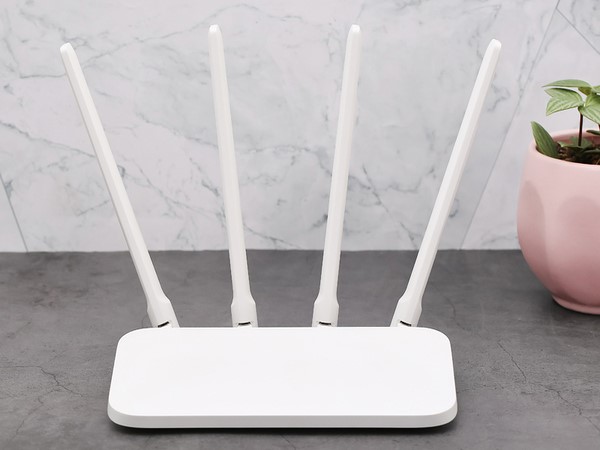
A Wifi Modem is a device that connects your Internet Service Provider (ISP) to your network. It converts the signal from the service provider into a signal that electronic devices in your home or office can use, allowing you to connect to the internet.
A Wifi Modem often integrates wireless broadcasting features, allowing devices like phones, laptops, and tablets to connect to the network without needing a network cable. With a wifi modem, users can not only access the internet but also enjoy a convenient wireless network connection within the modem’s coverage area.
Main Functions of a Modem
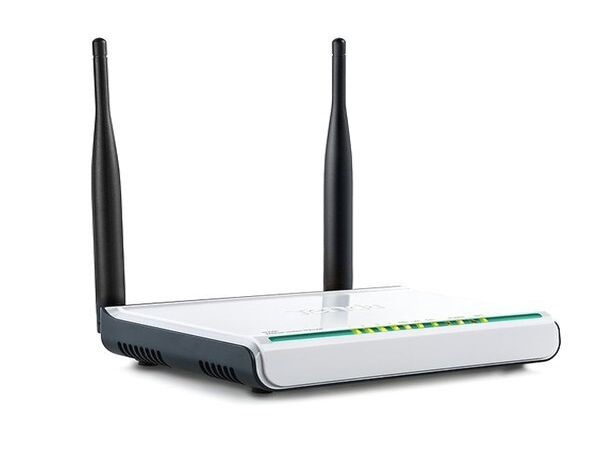
A Modem is an indispensable device in a home or office network system, helping to connect users to the Internet. Depending on the type of modem, its functions may vary, but fundamentally, a modem performs the following main functions.
Converting signals between the Internet and user devices
The most important function of a modem is to convert the signal from the Internet Service Provider (ISP) into a signal that network devices in the home or office can understand and use. The modem receives signals from a telephone line, fiber optic cable, or wireless signal and converts them into an Ethernet signal so that devices can connect and access the Internet.
Broadcasting wifi (on a wifi modem)
Modern modems often integrate wifi broadcasting functionality. This helps users connect to the Internet wirelessly, creating a wifi network within the range the modem can cover. Devices such as phones, laptops, and tablets can connect to this network to access the Internet without using cables.
Managing IP addresses
Modems often have the function of assigning IP addresses to devices connected to the network. Some modems also integrate DHCP (Dynamic Host Configuration Protocol), which automatically assigns IP addresses to devices on the network without requiring manual configuration from the user. This makes connecting to the network easier and more convenient.
Providing LAN (Ethernet) connection ports
In addition to wifi connectivity, modems also provide LAN (Ethernet) ports to connect fixed devices such as desktop computers, smart TVs, printers, etc. A connection via a LAN port is often more stable and provides higher internet access speeds compared to a wifi connection.
Supporting multiple network types
Modems can support various types of connections, such as ADSL, fiber optic, 3G/4G, and 5G. Depending on the type of service provided by the Internet provider, the modem will be configured to be compatible with that network, helping users to access the Internet stably.
Popular Types of Wifi Modems
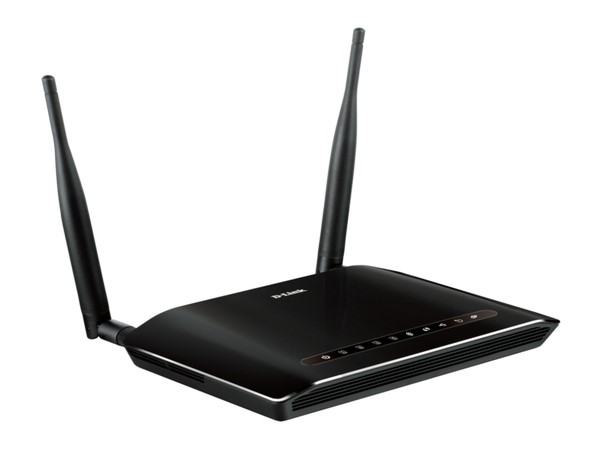
Currently, there are many types of wifi modems on the market with different features and configurations, suitable for the needs of consumers. Here are some popular types of wifi modems:
- ADSL Modem: An ADSL (Asymmetric Digital Subscriber Line) modem is a type of modem that uses a telephone line connection to transmit internet signals. This type of modem was popular in previous years and is still widely used, especially in areas not yet covered by fiber optic cables.
- Fiber Optic Modem: A fiber optic modem is a type of modem used to connect to the Internet via fiber optic cable, providing much faster data transmission speeds than ADSL. This is a popular type of modem for areas that already have fiber optic infrastructure.
- 4G/5G Wifi Modem: A 4G/5G modem is a type of modem that uses a mobile network to connect to the Internet, instead of having to use a fiber optic or telephone line. This type of modem is often used in areas without fixed Internet infrastructure or in situations requiring mobility.
- Wifi Modem with integrated Router: A Wifi Modem with an integrated Router is a type of modem that has the added functionality of broadcasting wifi and managing the network, instead of requiring a separate router. This is a popular all-in-one device in modern homes and offices.
- Mesh Modem: A Mesh Modem is a type of modem that uses mesh technology to broadcast wifi. Instead of having only one access point, a mesh modem system has multiple access points connected to each other, which helps to enhance the signal and wifi coverage range.
Each type of Wifi Modem has its own unique features and applications, suitable for different needs and usage conditions. Whether you need a stable connection for mobile devices, or a wifi network system that covers your entire house, choosing the right type of modem will help you optimize network efficiency and experience a better Internet connection.
Understanding Wifi Routers
A Wifi Router not only helps share an Internet connection but also ensures the speed, stability, and security of a home or business network. So, what is a Wifi Router, what are its main functions, and what are the popular types of Wifi Routers on the market?
What is a Wifi Router?
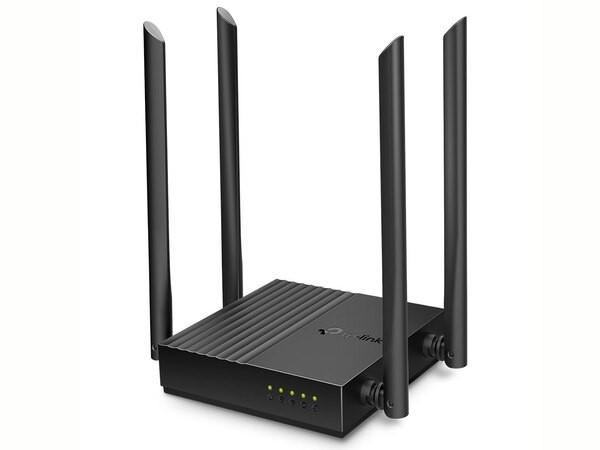
A Wifi Router, also known as a wireless router, is a network device that distributes the Internet signal from the modem to other devices on the network via a wireless (Wifi) or wired (Ethernet) connection. The router acts as the central hub in a local area network (LAN), helping devices such as phones, computers, tablets, and IoT devices to connect and access the Internet stably.
In addition to sharing the Internet connection, a Wifi Router also has the ability to manage data flow, optimize bandwidth, and protect the network through security features such as firewalls, data encryption, and access control. This is an important device for building an effective network system that suits the needs of users at home, in the office, or in public spaces.
Main Functions of a Wifi Router
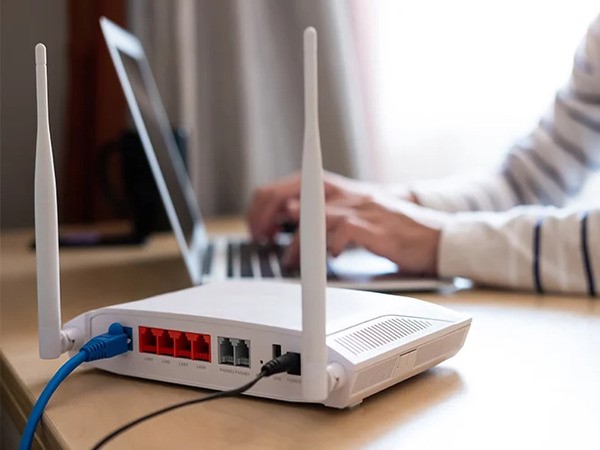
A Wifi Router is a crucial network device that performs many necessary functions to ensure the stable and efficient operation of a network system. Below are the main functions of a Wifi Router.
Distributing Internet Connection
A Wifi Router receives the Internet signal from the modem and shares that connection with devices on the network, including phones, computers, tablets, and other smart devices. Thanks to its wireless broadcasting capability (Wifi), a Router allows users to connect to the network without cables, providing convenience and flexibility.
Managing and Directing Data Flow
The Wifi Router is responsible for routing data between devices on the network and resources on the Internet. When you visit a website or download data, the Router will determine the optimal path for the data to be transmitted quickly and accurately.
Creating and Managing a Local Area Network (LAN)
In addition to connecting to the Internet, a Wifi Router also allows devices on the same local network to communicate with each other. This is particularly useful for sharing resources like printers, data servers, or when playing online games on the same network.
Network Security
One of the important functions of a Wifi Router is to protect the network from external threats. Routers are often equipped with security features such as a firewall, WPA/WPA2/WPA3 encryption, and the ability to filter MAC addresses to control which devices are allowed to access the network.
Bandwidth Control and Device Management
Modern Wifi Routers often provide bandwidth management features, allowing you to prioritize connections for important devices or applications. In addition, many Routers also have parental control functions, helping to limit Internet access time or block inappropriate content.
Popular Types of Wifi Routers
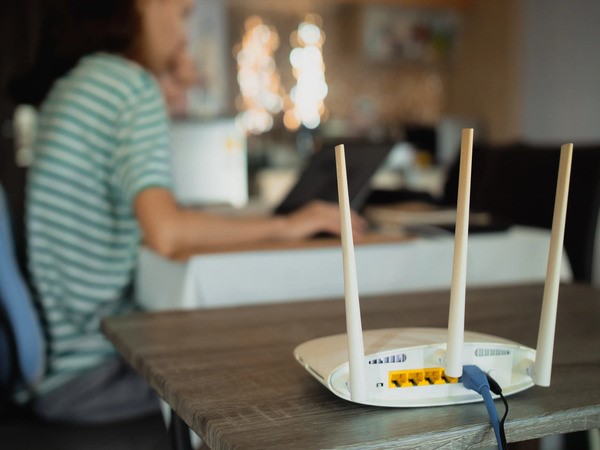
On the market today, there are many different types of Wifi Routers, meeting the diverse needs of users from individuals and families to businesses. Below are the most popular types of Wifi Routers and the characteristics of each type.
- Traditional Standard Wifi Routers (Single-Band and Dual-Band): Traditional Wifi routers are basic products, suitable for normal usage needs. These types of Routers provide a stable and easy-to-use connection, especially in small spaces or with a not-too-large number of devices.
- Mesh Standard Wifi Router (Mesh Wifi): Mesh Wifi is the ideal solution for large spaces or areas with many obstacles. This system helps optimize coverage and maintain a smooth connection, providing a seamless Internet experience in every corner.
- Gaming Wifi Router: Designed specifically for gamers, a Gaming Wifi Router delivers powerful performance with the ability to prioritize bandwidth for online games, reduce latency, and ensure a stable connection during important matches.
- Mobile Wifi Router: A mobile Wifi Router is the perfect choice for people who frequently travel or work in places without a wired network. This compact device offers maximum convenience with an Internet connection via a mobile network.
- Enterprise Wifi Router: An enterprise Wifi router is designed for large businesses or complex network systems. With the ability to support many devices and advanced security features, this is an ideal choice to ensure stable and secure network operations.
- Specialized Wifi Router for Broadband (Gigabit Router): A Gigabit Router is a modern product line that makes the most of the speed of high-bandwidth Internet packages. This type of Router is equipped with advanced technologies, providing a fast and efficient connection experience for users.
The choice of the right Wifi Router type depends on the user’s needs, the size of the space, and the budget. From traditional Routers to modern solutions like Mesh Wifi or smart Routers, the market today offers many choices to meet all connection requirements.
Comparing Wifi Modems and Wifi Routers
Many users still confuse these two devices, leading to difficulties in choosing and using them correctly. Clearly understanding the difference between a Wifi Modem and Wifi Router not only helps you use the network more effectively but also avoids unnecessary costs.
Similarities between Wifi Modems and Wifi Routers
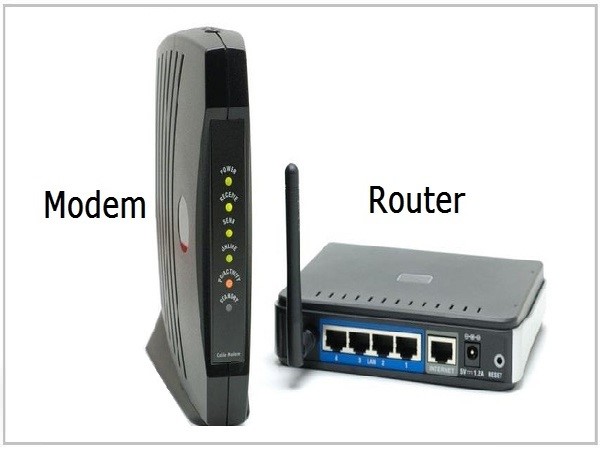
Wifi Modems and Wifi Routers are two important devices in a network system, playing the role of connecting and distributing the Internet to devices on the network. Although there is a clear difference in function, both devices also have many similarities, as follows:
- Internet Connection Function: Both Wifi Modems and Wifi Routers are used to connect devices to the Internet. The Wifi Modem receives the signal from the service provider (ISP) and converts it into a usable signal, while the Wifi Router is responsible for distributing that signal to devices on the network. However, the common goal of both is to ensure that users can easily access the Internet.
- Support for Wireless Connection (Wifi): Both Wifi Modems and Wifi Routers have the ability to broadcast wirelessly, allowing devices such as phones, laptops, and tablets to connect to the network without using cables. This brings convenience and flexibility in accessing the Internet from any location within the coverage area.
- Ability for Wired Connection (Ethernet): Both devices support Ethernet ports, allowing direct connection of devices such as desktop computers, smart TVs, or game consoles to the network. This wired connection is generally more stable and less affected by interference compared to Wifi.
- Role in a Local Network: Both Wifi Modems and Wifi Routers participate in managing the local area network (LAN). They help devices on the same local network to communicate with each other, such as sharing data between computers or connecting to a network printer.
- Network Security Technology: Both devices are equipped with security technologies such as Wifi encryption (WPA/WPA2/WPA3) and firewalls. This helps protect the network from external threats and ensures the safety of user data.
- Support for Multiple Simultaneous Connections: Both Wifi Modems and Wifi Routers have the ability to support multiple devices connecting at the same time. This is suitable for network environments with many users, from families to small offices.
- Configuration and Management Capability: Users can configure and manage both Wifi Modems and Wifi Routers through a web admin interface or a mobile app. Options such as changing the network name (SSID), password, or controlling connected devices are available on both devices.
Although each device has its own specific function, they share many similarities in terms of connectivity, supporting both Wifi and Ethernet, and providing security features to ensure the network operates effectively and securely.
Differences between Wifi Modems and Wifi Routers
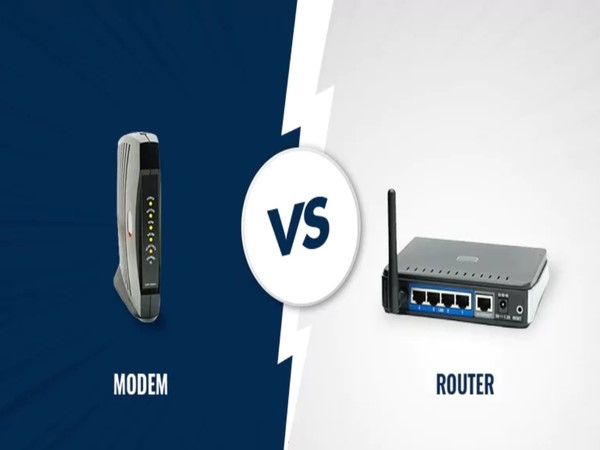
A Wifi Modem and a Wifi Router are two indispensable devices in building a stable network system. However, not everyone can distinguish the specific roles and functions of each device. To help you understand better, this section will detail the differences between a Wifi Modem and a Wifi Router in the comparison table below.
| Criteria | Wifi Modem | Wifi Router |
| Main Function | Connects directly to the Internet Service Provider (ISP) and converts the signal into a usable form. | Distributes the Internet signal from the Modem to other devices on the network via wireless or wired connection. |
| Position | Is the first device connected to the provider’s Internet line. | Connects after the Modem, responsible for managing the local network and broadcasting Wifi. |
| Operational Capability | Can operate independently to provide Internet via a wired connection, but with limited support range. | Cannot operate independently, needs a signal from the Modem to function. |
| Network Management | Mainly handles the signal from the ISP, does not have the ability to manage multiple devices on the network. | Manages data flow between devices on the local network and the Internet. |
| Connectivity | Limited connection to one or a few devices via an Ethernet port. | Simultaneous connection with multiple devices via Wifi or Ethernet ports. |
| Security | Basic security, focused on encrypting the incoming signal from the ISP. | Integrates advanced security features like a firewall, access control, and bandwidth prioritization. |
| Network Expansion | Does not support network expansion or efficient Wifi broadcasting in large spaces. | Supports network expansion via Mesh Wifi or additional Wifi extenders. |
| Integrated Device | Some Wifi Modems integrate basic Wifi broadcasting features. | Some Routers integrate Modem functionality, creating a multifunctional Modem Router device. |
Distinguishing between a Wifi Modem and a Wifi Router is very important to clearly understand how the network system works and to choose the appropriate device for your needs. Understanding the role of each device will help you build an efficient, stable, and secure network system.
Should you buy a Wifi Modem or a Wifi Router?
Nowadays, having a stable and efficient network system is essential. However, many people are often confused when choosing between a Wifi Modem and a Wifi Router because they don’t clearly understand the role and function of each device. So when should you buy a Wifi Modem or a Wifi Router?
Should I buy a Modem or a Router?
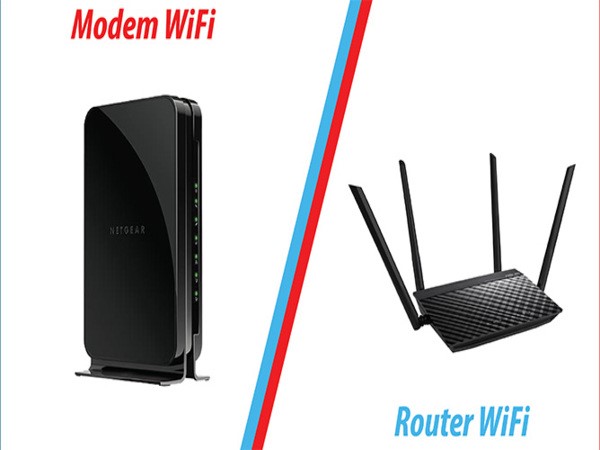
Whether you should buy a Wifi Modem or a Wifi Router depends on how you use the Internet. If your ISP has already provided a Modem, you only need to buy a Router to expand and manage your network. Conversely, if your ISP requires you to provide your own end device, a Modem is mandatory. For those who need a comprehensive upgrade, you should consider investing in both separate devices or an integrated device to ensure the best performance.
How to distinguish a Wifi Modem from a Wifi Router by appearance
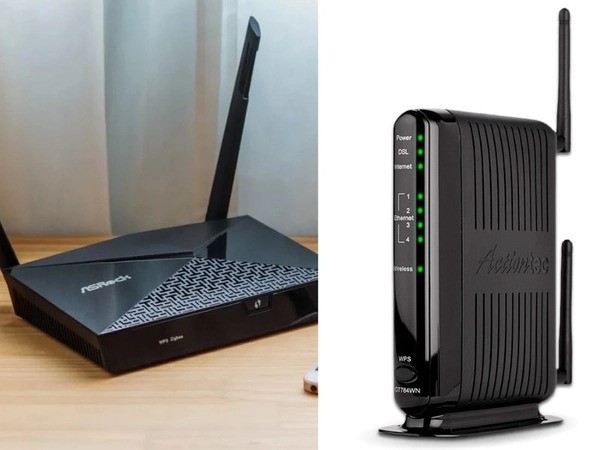
A Wifi Modem and a Wifi Router can be distinguished by some physical characteristics. A Modem usually has few Ethernet ports (usually 1 to 2 ports) and comes with a connection port for the ISP’s line (DSL, copper cable, or fiber optic port). A Wifi Router often has multiple Ethernet ports (4 or more) to connect to other devices and multiple antennas for broadcasting Wifi. Some integrated devices (Modem Routers) have both of these characteristics, but their function is usually clearly stated on the device’s label or technical specifications.
How to choose the right Wifi Modem and Wifi Router?
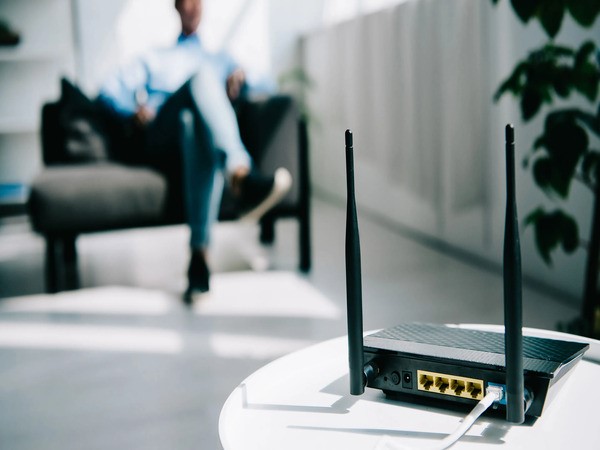
Choosing the right Wifi Modem and Wifi Router is an important decision to ensure the network system operates stably, efficiently, and meets all Internet usage needs. Here are the important factors to consider when making a decision:
- Usage Needs: If you only need a basic connection, an integrated Wifi Modem is sufficient. But if you need to manage a complex network or extend Wifi range, choose a dedicated Wifi Router.
- Internet Speed: Make sure the device you choose supports the speed of your Internet plan. Older modems and routers may not be able to handle high-speed plans.
- Wifi Coverage Range: For large spaces, consider a Wifi Router that supports Mesh or has powerful antennas.
- Security Features: A router with advanced security features like a firewall, VPN, or WPA3 will help protect your network better.
- Budget: Separate modems and routers usually cost more than integrated devices. Consider your finances to choose the most suitable solution.
Choosing the right device not only ensures good network performance but also helps you enjoy a stable and secure Internet experience.
In conclusion
The decision on whether to buy a wifi modem or a wifi router depends on your usage needs and network configuration. Hopefully, this article has provided you with more information to make the right decision, ensuring your internet network is always stable and effective!











